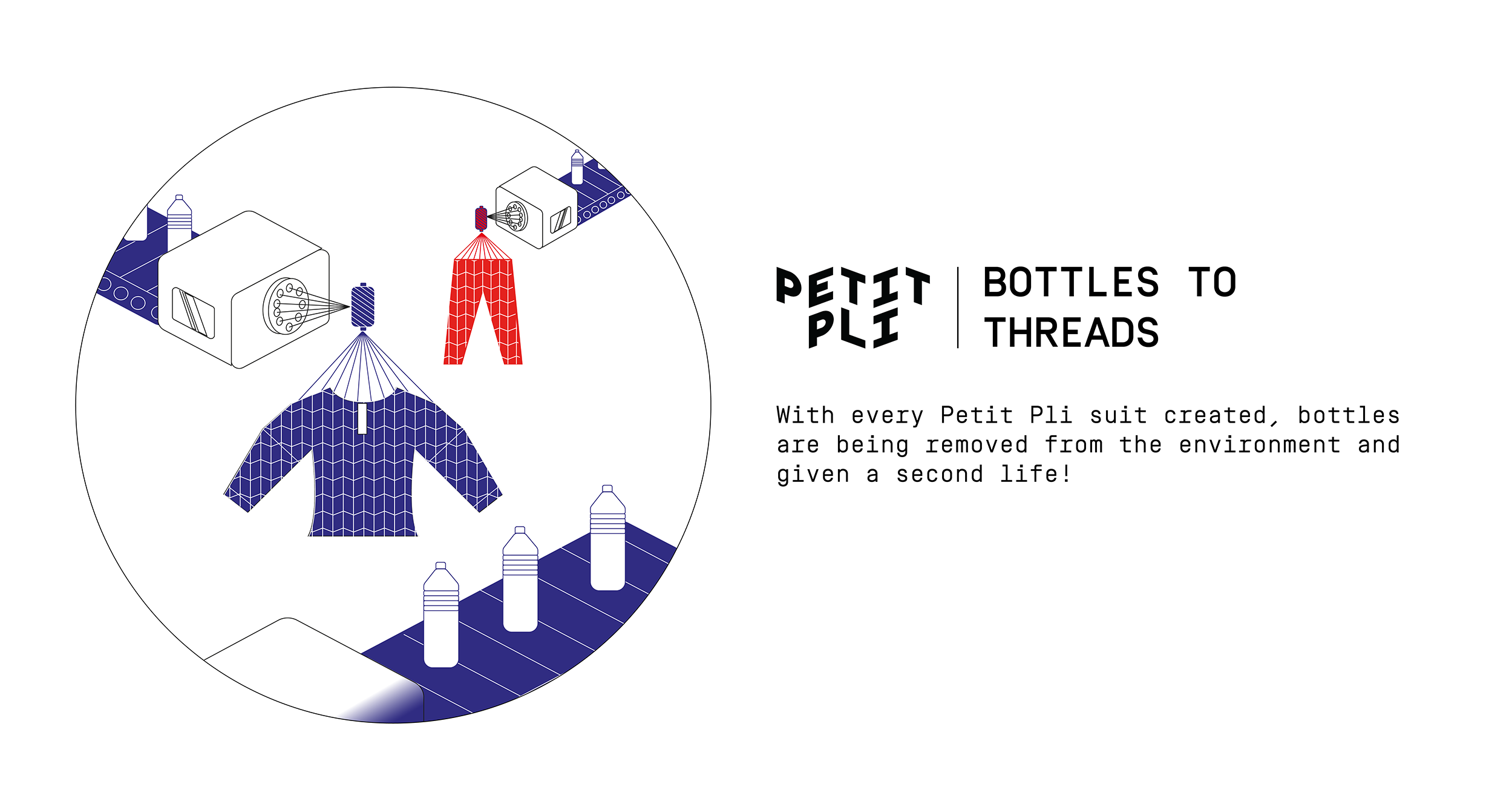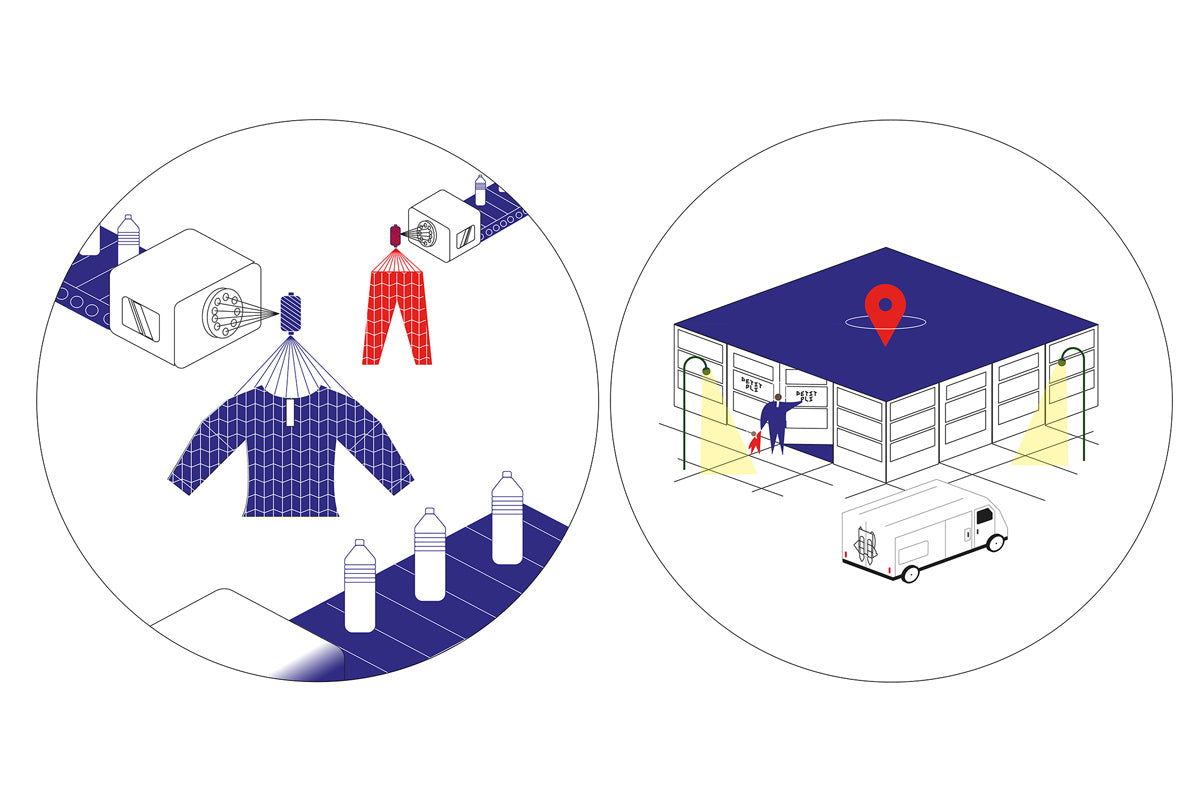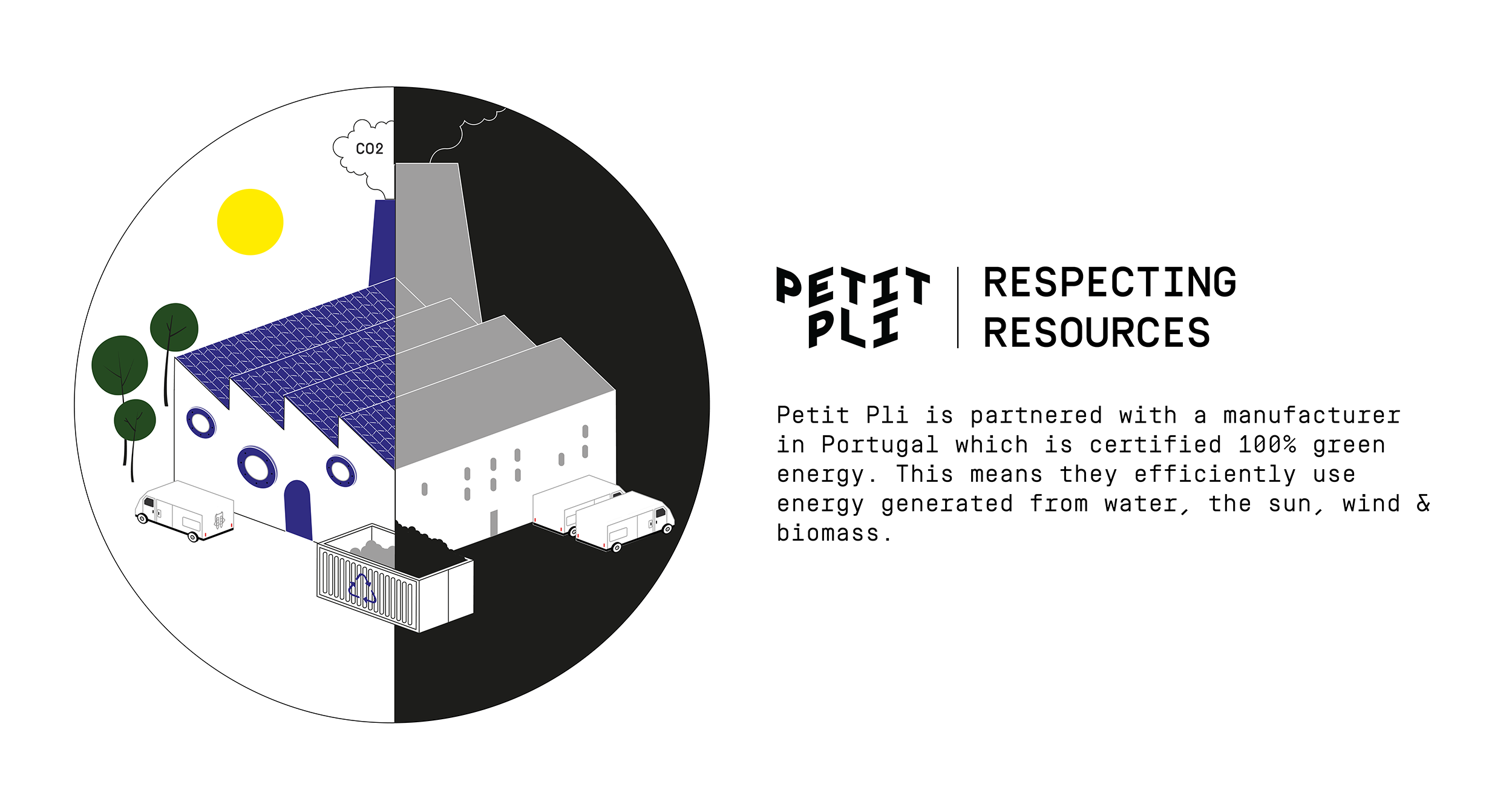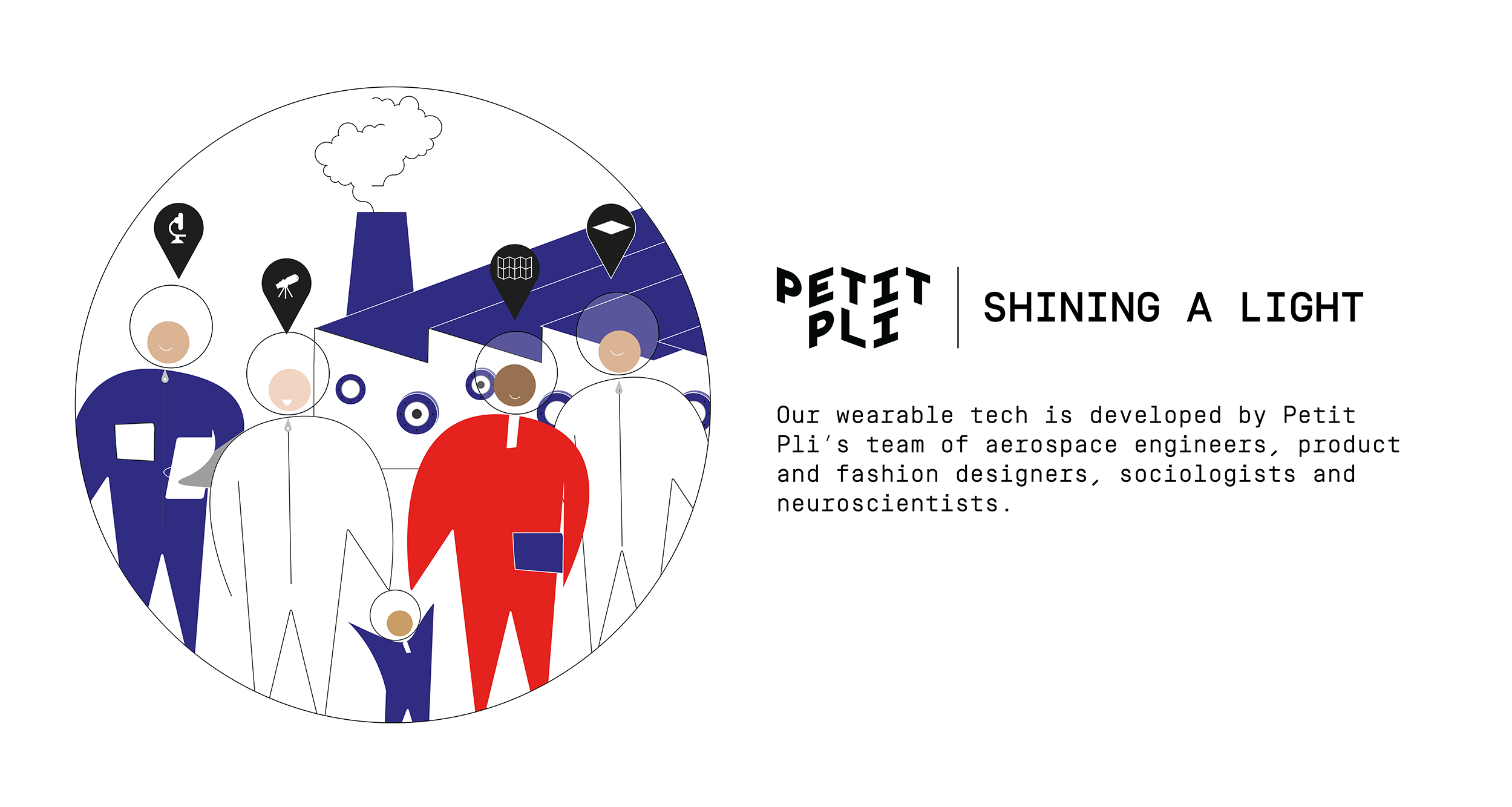持続可能な子供服の革命
Why does Petit Pli Exist?
Simple, to offer parents an alternative option which is better for people and planet. From harvesting raw materials, converting them into sheets of textiles, shipping them to a factory and ensuring that those making the garments have employment rights and are not paid below the minimum wage, shipping the end products to a warehouse and paying all the relevant wages. What is the true cost? The cost to other people making the clothes and the cost to the future world that our LuttleHumans will grow up in?
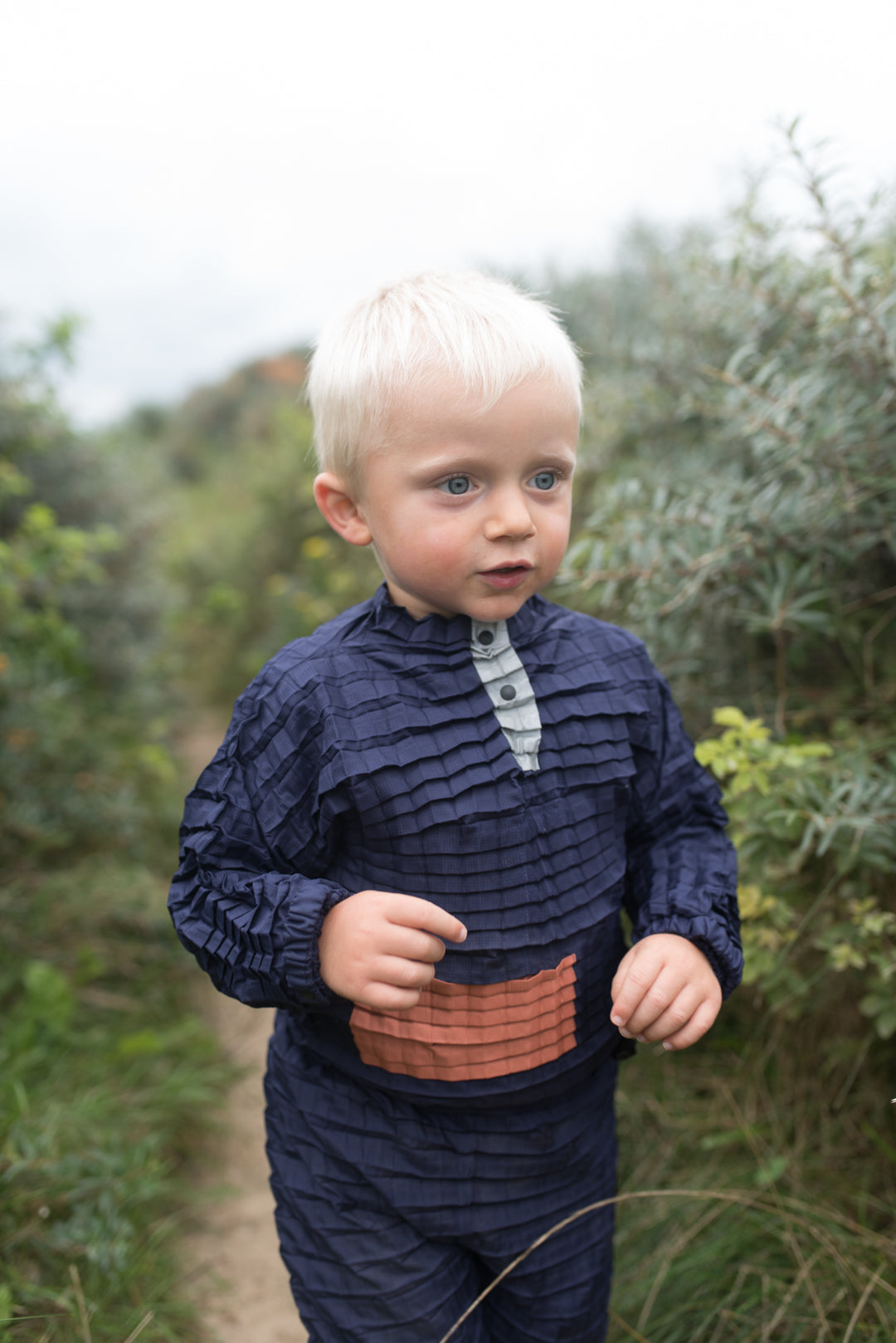
It all started with Ryan’s nephew. Shortly after Viggo was born Ryan gifted him clothes, but by the time they arrived they were already too small. This served as a signal: childrenswear today fails to recognise the dynamic and rapidly changing bodies of Earth’s LittleHumans. Inspired by his background in deployable satellite technology, Ryan created a garment that would grow with his nephew, reducing water and carbon footprints, and the need to keep buying new clothes. Soon after, Petit Pli was born and Clothes That Grow went on to winmultiple awards, starting a sustainable childrenswear revolution.
“A sustainable yet elegant design for the most important people in the world.”
"One part japanese avant-garde, one part mediaval armour."
Our Policies
-
At Petit Pli, design is not just about trends & aesthetics, it’s a philosophy that addresses challenges across the entire value chain. By merging aerospace engineering principles with sustainable practices, we create garments that grow with children, extending product life cycles and reducing waste. Achieving significant reductions in emissions and waste across the product lifecycle.
Key Design Principles:
- Efficiency by Design:
Our patented expandable garments reduce material consumption and eliminate the need for frequent replacements, minimising environmental impact at the production and post-consumer stages. - Circularity at the Core:
By prioritising mono-material textiles and recyclable fabrics (over 95% of our productions), we ensure our products can be reintegrated into the value chain after use, supporting circular fashion systems. - Longevity in Every Detail:
Every Petit Pli garment is meticulously engineered for durability and adaptability, designed to withstand the active lives of children as they grow. To further improve longevity and reduce our environmental footprint, we proudly offer free repairs. - Global Scalability with Local Roots:
Manufacturing in London and Portugal (over 95% of our productions) allows us to remain agile and innovative while supporting local economies and reducing transportation emissions.
Value Chain Impact:
- Upstream Innovation: Partnering with suppliers who share our commitment to responsible practices ensures high-quality, sustainable materials from the start.
- Midstream Efficiency: Our expandable designs reduce production volume needs, supporting smaller, more efficient manufacturing runs. This includes up to 20X fewer returns on account of Petit Pli's growth technology having a bi-product of reducing multiple sizes being purchased and the ill-fitting sizes being returned.
- Downstream Responsibility: By extending garment lifespans, we empower families to consume less while delivering more value.
- Efficiency by Design:
-
Petit Pli is committed to ethical sourcing for any animal-derived materials and prioritises sustainable alternatives wherever possible.
Our Practices:
- We use only ethically sourced merino wool, verified by suppliers who meet stringent welfare standards.
- We do not use leather, fur, down, exotic animal skin, or angora in any of our products.
- We are actively exploring plant-based and innovative recycled materials to further reduce our reliance on animal-derived fibres.
-
Petit Pli traces its supply chain rigorously, ensuring transparency from fabric sourcing to final production.
Achievements:
- Over 95% of our textiles (by volume production) are Bluesign accredited and 100% recycled, ensuring minimal environmental impact without compromising on quality.
- 100% traceability of final production stages in London and Portugal.
- Use of certified materials (e.g., bluesign) to ensure sustainable and responsible sourcing.
-
At Petit Pli, we ensure all workers within our supply chain are paid living wages, as we believe ethical manufacturing starts with fair compensation.
How We Ensure Living Wages:
- Partnering with suppliers in London and Portugal who commit to paying wages above legal minimums, reflecting the true cost of living in their regions.
- Conducting wage benchmarking studies using resources from the Global Living Wage Coalition and other reputable indices.
-
We prioritise transparency and accountability at every stage of our supply chain, ensuring all practices align with Petit Pli’s values of ethical manufacture.
Audit Process:
- Scope: Annual third-party and internal audits of suppliers covering working conditions, wages, safety protocols, and compliance with our Code of Conduct.
- Frequency: Suppliers undergo regular audits every 12-18 months to maintain compliance.
-
Petit Pli is committed to upholding the highest standards of ethical and responsible practices across our supply chain. Our Code of Conduct, shared with all suppliers, ensures compliance with international labour standards and promotes fair working conditions.
Key Principles:
Labour Rights:
- Prohibition of forced, bonded, or child labour.
- Freedom of association and collective bargaining rights.
- Equal opportunities and non-discrimination in the workplace.
Fair Wages & Benefits:
- All workers in our supply chain receive living wages, calculated based on reliable benchmarks such as the Global Living Wage Coalition.
- Overtime pay is compensated in accordance with local laws and living wage standards.
Health & Safety:
- Suppliers must provide safe, hygienic, and secure working environments, regularly reviewed by Petit Pli through audits and inspections.
Environmental Protection:
- Suppliers are required to minimise environmental harm through sustainable resource use and waste management practices.
-
At Petit Pli, design is not just about trends & aesthetics, it’s a philosophy that addresses challenges across the entire value chain. By merging aerospace engineering principles with sustainable practices, we create garments that grow with children, extending product life cycles and reducing waste. Achieving significant reductions in emissions and waste across the product lifecycle.
Key Design Principles:
- Efficiency by Design:
Our patented expandable garments reduce material consumption and eliminate the need for frequent replacements, minimising environmental impact at the production and post-consumer stages. - Circularity at the Core:
By prioritising mono-material textiles and recyclable fabrics (over 95% of our productions), we ensure our products can be reintegrated into the value chain after use, supporting circular fashion systems. - Longevity in Every Detail:
Every Petit Pli garment is meticulously engineered for durability and adaptability, designed to withstand the active lives of children as they grow. To further improve longevity and reduce our environmental footprint, we proudly offer free repairs. - Global Scalability with Local Roots:
Manufacturing in London and Portugal (over 95% of our productions) allows us to remain agile and innovative while supporting local economies and reducing transportation emissions.
Value Chain Impact:
- Upstream Innovation: Partnering with suppliers who share our commitment to responsible practices ensures high-quality, sustainable materials from the start.
- Midstream Efficiency: Our expandable designs reduce production volume needs, supporting smaller, more efficient manufacturing runs. This includes up to 20X fewer returns on account of Petit Pli's growth technology having a bi-product of reducing multiple sizes being purchased and the ill-fitting sizes being returned.
- Downstream Responsibility: By extending garment lifespans, we empower families to consume less while delivering more value.
- Efficiency by Design:
-
Petit Pli traces its supply chain rigorously, ensuring transparency from fabric sourcing to final production.
Achievements:
- Over 95% of our textiles (by volume production) are Bluesign accredited and 100% recycled, ensuring minimal environmental impact without compromising on quality.
- 100% traceability of final production stages in London and Portugal.
- Use of certified materials (e.g., bluesign) to ensure sustainable and responsible sourcing.
-
We prioritise transparency and accountability at every stage of our supply chain, ensuring all practices align with Petit Pli’s values of ethical manufacture.
Audit Process:
- Scope: Annual third-party and internal audits of suppliers covering working conditions, wages, safety protocols, and compliance with our Code of Conduct.
- Frequency: Suppliers undergo regular audits every 12-18 months to maintain compliance.
-
Petit Pli is committed to ethical sourcing for any animal-derived materials and prioritises sustainable alternatives wherever possible.
Our Practices:
- We use only ethically sourced merino wool, verified by suppliers who meet stringent welfare standards.
- We do not use leather, fur, down, exotic animal skin, or angora in any of our products.
- We are actively exploring plant-based and innovative recycled materials to further reduce our reliance on animal-derived fibres.
-
At Petit Pli, we ensure all workers within our supply chain are paid living wages, as we believe ethical manufacturing starts with fair compensation.
How We Ensure Living Wages:
- Partnering with suppliers in London and Portugal who commit to paying wages above legal minimums, reflecting the true cost of living in their regions.
- Conducting wage benchmarking studies using resources from the Global Living Wage Coalition and other reputable indices.
-
Petit Pli is committed to upholding the highest standards of ethical and responsible practices across our supply chain. Our Code of Conduct, shared with all suppliers, ensures compliance with international labour standards and promotes fair working conditions.
Key Principles:
Labour Rights:
- Prohibition of forced, bonded, or child labour.
- Freedom of association and collective bargaining rights.
- Equal opportunities and non-discrimination in the workplace.
Fair Wages & Benefits:
- All workers in our supply chain receive living wages, calculated based on reliable benchmarks such as the Global Living Wage Coalition.
- Overtime pay is compensated in accordance with local laws and living wage standards.
Health & Safety:
- Suppliers must provide safe, hygienic, and secure working environments, regularly reviewed by Petit Pli through audits and inspections.
Environmental Protection:
- Suppliers are required to minimise environmental harm through sustainable resource use and waste management practices.
Our Inspirations
-
Read more: V&A | Petit Pli: Patterns in Play Collaboration

V&A | Petit Pli: Patterns in Play Collaboration
Discover Patterns in Play, Petit Pli’s limited-edition collaboration with the V&A. Featuring expandable garments inspired by artworks from the V&A's collections, each piece invites LittleHumans to explore design history through playful prints layered with hidden stories and tiny discoveries. Available online and in-store.
Read more -
Read more: Exploring Japan’s Iconic Octopus Playgrounds
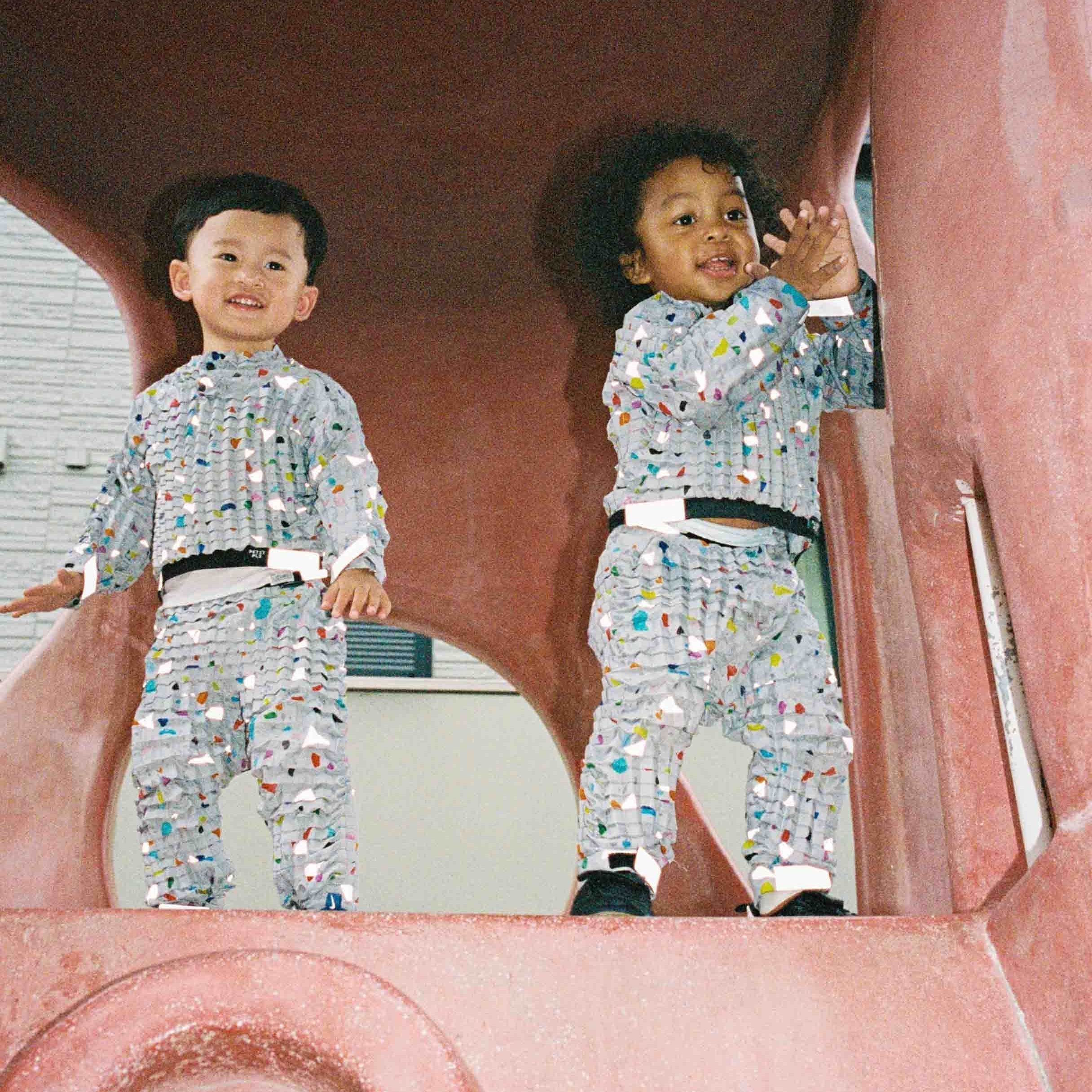
Exploring Japan’s Iconic Octopus Playgrounds
This summer, Petit Pli joined forces with London design atelier Time & Space to explore Japan’s iconic octopus playgrounds. Captured through the eyes of LittleHuman Angelo, our Memphis-inspired foldwear blends bold design with real-world adventure. Engineered to grow with every leap and tumble, each garment is crafted from recycled ripstop fabric and built for play, discovery and sustainability.
Read more -
Read more: Grow With Me Clothes Explained
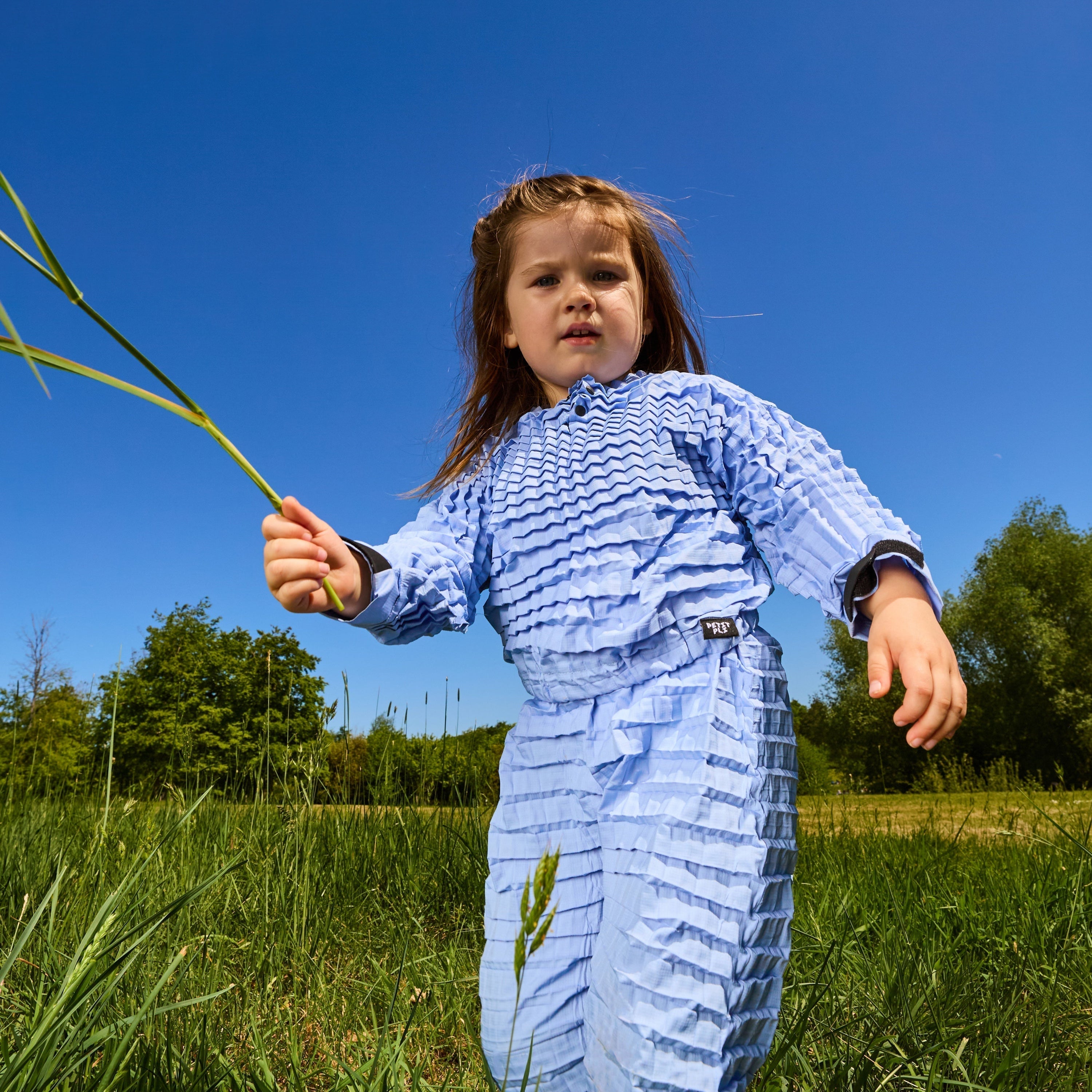
Grow With Me Clothes Explained
Petit Pli’s grow with me clothes are designed to fit children through multiple sizes, reducing waste and replacing fast fashion with long-lasting innovation. Engineered by an aerospace-trained founder, our garments expand up to seven sizes and are made from recycled materials. Discover sustainable kidswear that adapts to movement, sparks joy, and supports a lighter footprint for families and the planet.
Read more -
Read more: History of Clothes That Grow
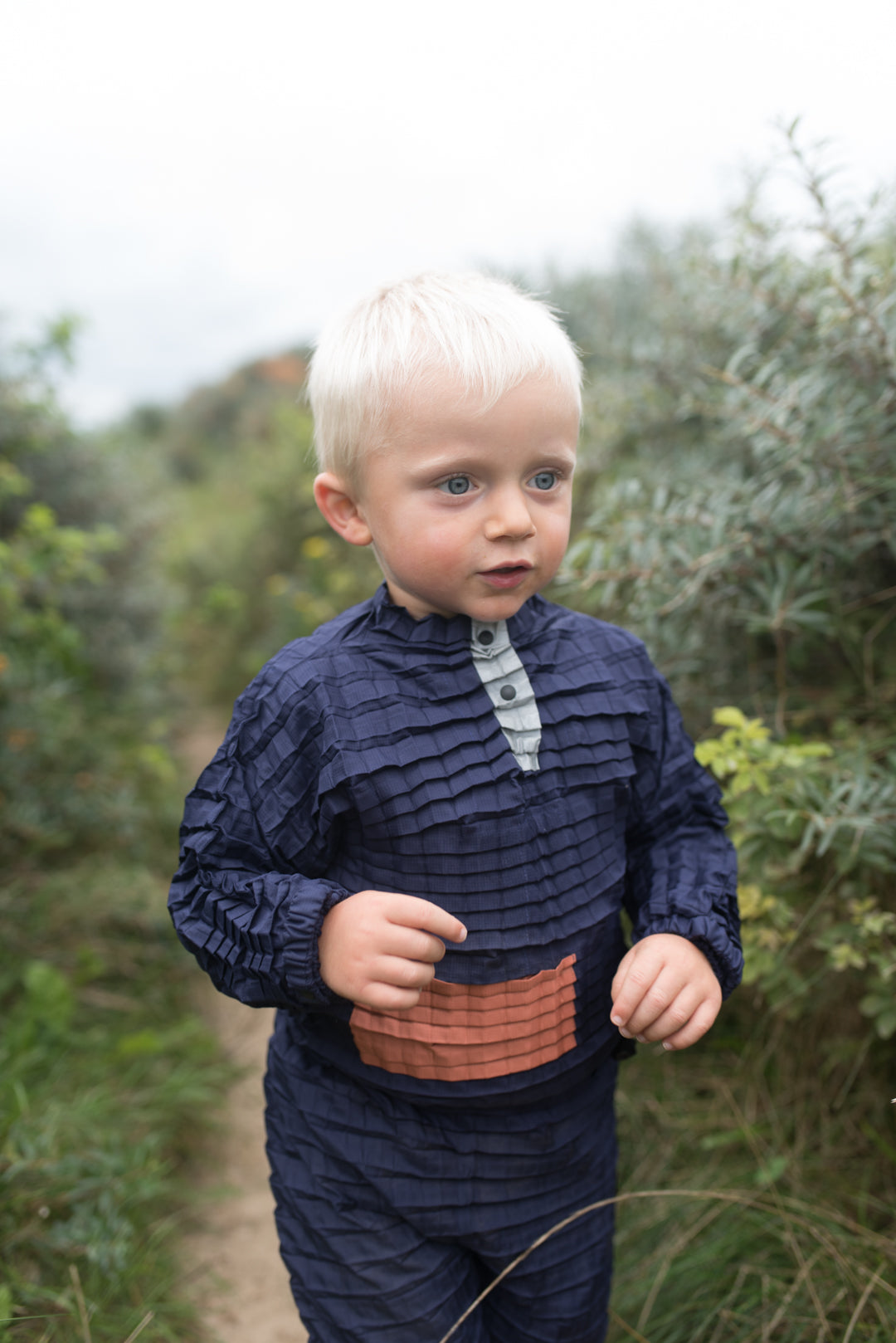
History of Clothes That Grow
Step inside the story of Petit Pli from a spark of inspiration to award‑winning Clothes That Grow. Follow our journey through a visual timeline of ideas, prototypes, and milestones that shaped our mission to clothe the future of humanity. Discover how one small fold turned into a global movement.
Read more
